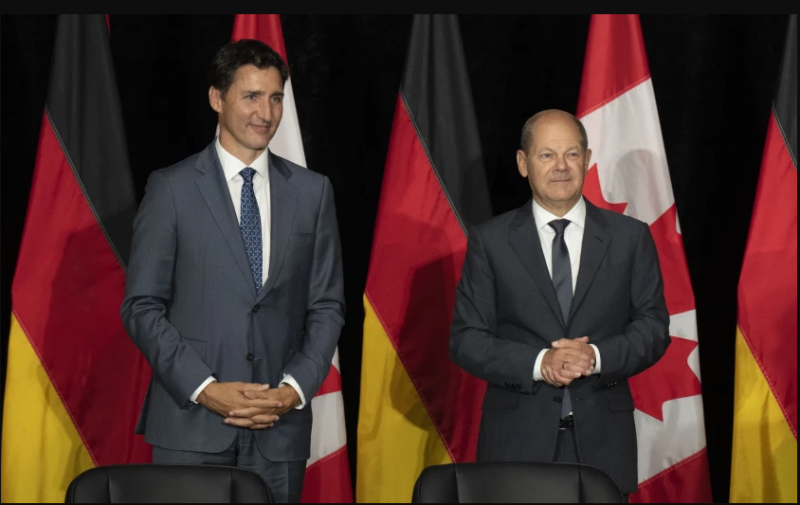
Germany: German and Canadian leaders announced Tuesday that a new hydrogen agreement will kick-start a transatlantic hydrogen supply chain, with the first shipments projected in just three years.
In the port city of Stephenville, Newfoundland, the agreement was signed by German Chancellor Olaf Scholz and Canadian Prime Minister Justin Trudeau.
A Canadian company wants to build an emissions-free facility that will use wind power to make hydrogen and ammonia for export.
In light of the conflict in Ukraine and the recent reduction in Russian natural gas supplies to Germany and other countries, hydrogen is seen as part of Europe's strategy to reduce its reliance on Russian fossil fuels.
“Market matter and need at large were on the horizon, but not quite. According to Trudeau, everything has been intensified because of Russia's illegal and unfair invasion of Ukraine.
According to Scholz, Germany's preferred partner, as it is far from being dependent on Russia for energy, is Canada.
In the new circumstances, "we may need even more," Scholz said.
As a result of Russia reducing or stopping the flow of natural gas to a dozen EU member states, natural gas prices have risen, raising inflation and raising the possibility that Europe will enter recession.
The Germans have been urged to reduce their gas consumption now so that there will be enough for the coming winter.
Early Tuesday, the Canadian government signed separate agreements with Mercedes-Benz and Volkswagen that would give the two German automakers access to Canadian raw materials for the batteries used in their electric vehicles.
The agreement covers Canadian cobalt, graphite, nickel and lithium.
Scholz: Putin Will Not Join NATO Before February 24
Samsung plans to expand its home appliance business in European market,
Canada approves first Covid booster for children aged 5-11